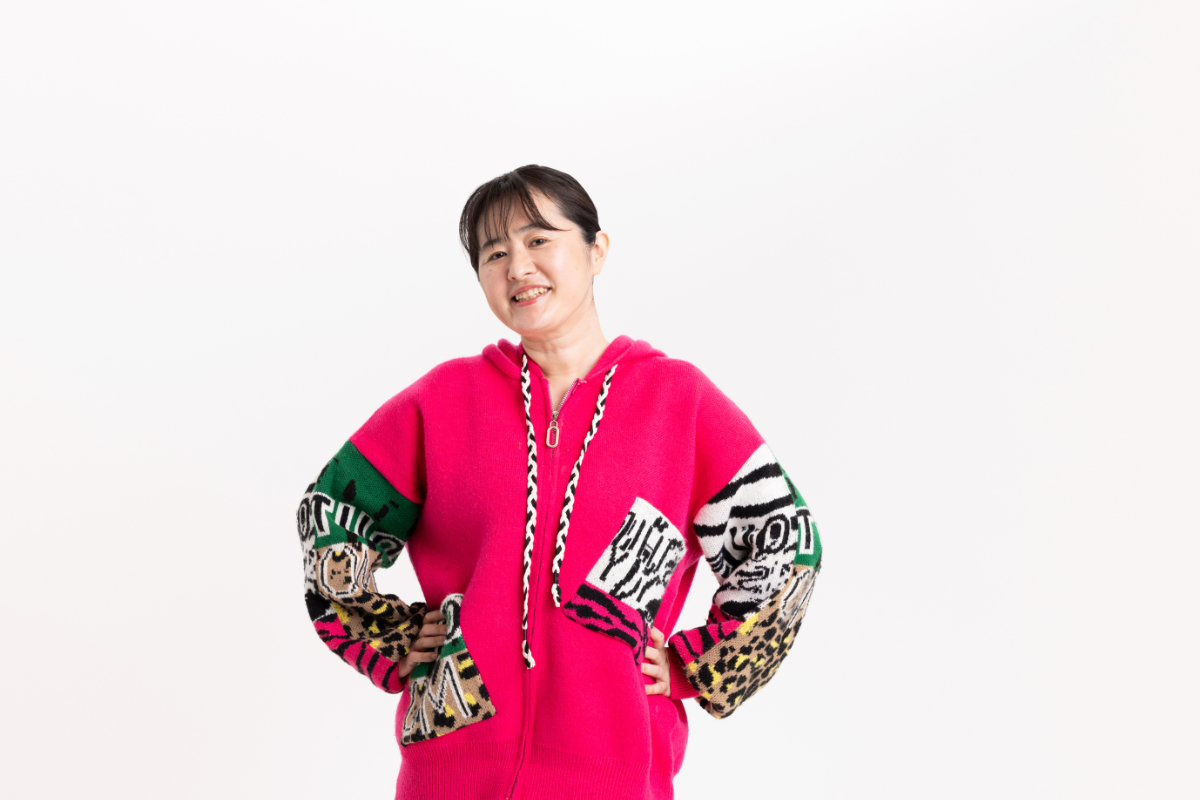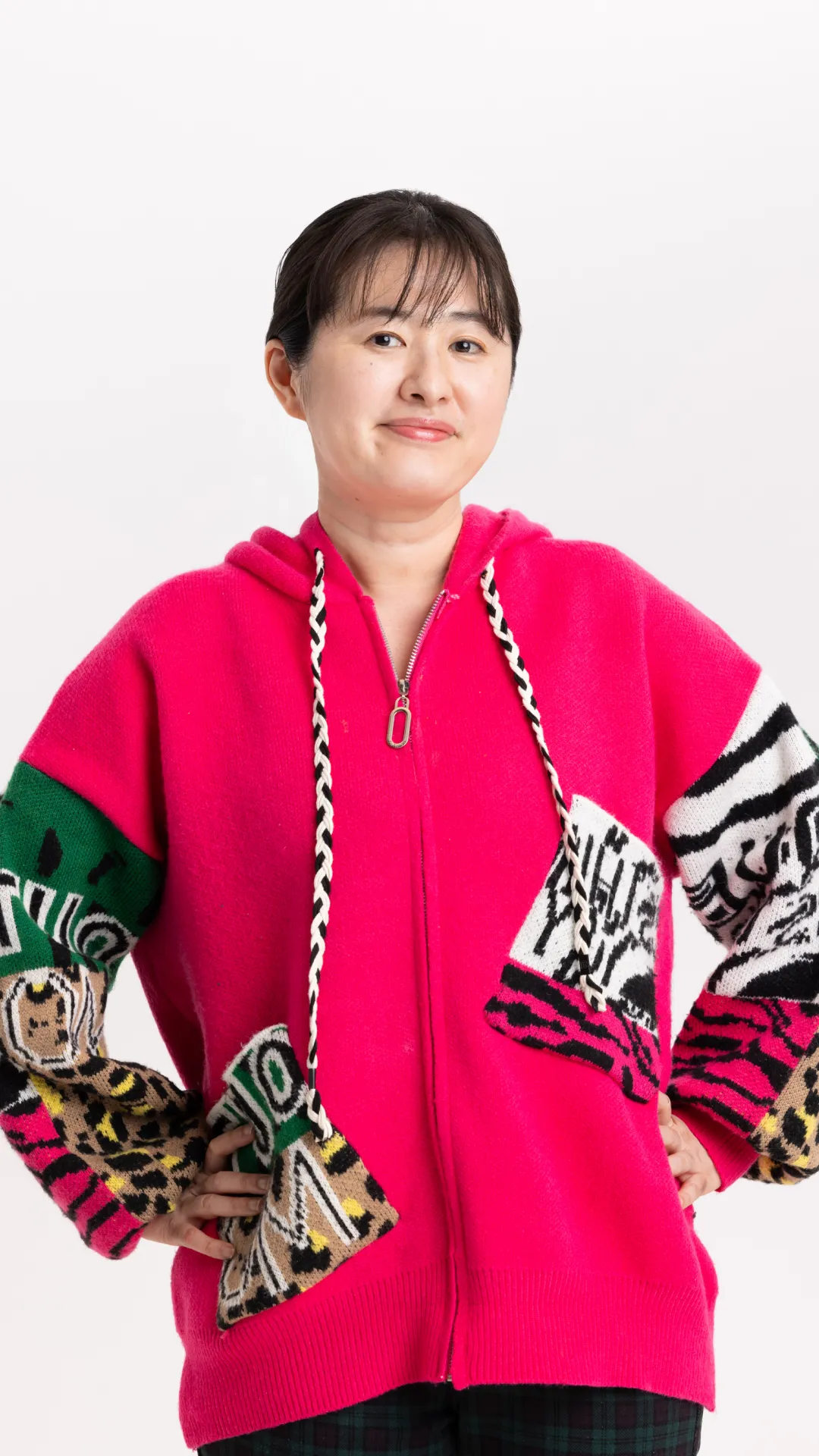Asako Yuzuki’s novel BUTTER, which is being translated into 35 languages worldwide, had its English edition released in 2024. It became a bestseller, with over 260,000 copies sold in the UK and over 100,000 copies in the US. It also made history as the first work by a Japanese author to win the Waterstones Book of the Year 2024, awarded by a major British bookstore chain.
According to Yuzuki, Japanese literature is currently experiencing a boom outside of Japan. This growing popularity led to her being invited on an authors’ tour across six cities in the UK, where she also gave a lecture at Oxford University. She has also visited countries such as India and Hong Kong. Reflecting on the time when her novel was criticized by male intellectuals in Japan, she never imagined it would eventually be endorsed by artists like Dua Lipa upon its release. Eight years after its publication in Japan, as she continues to travel the world with BUTTER, NiEW delved into the theme of “unease in living” in her book and explored her insights on finding the right balance of comfort in life.
INDEX
Never Imagined Such Popularity in Her Lifetime: A Parallel World of Global Reception
BUTTER was first published in 2017, at a time when, as Professor Toko Tanaka from the University of Tokyo pointed out, public opinion on feminism began to shift noticeably. I remember reading BUTTER back then and how it became a pivotal book that opened my eyes to different perspectives on feminism.
Yuzuki: Thank you very much.
After the paperback edition was released in 2020, BUTTER was translated into 35 languages, including English, French, and Italian. As you’ve traveled to different countries for lectures and events, did you feel the overwhelming international response firsthand?
Yuzuki: To be honest, I never imagined that my book would become this popular in Japan. It felt almost like entering a parallel world.
When I visited India, there were so many people asking for photos, and the line for autographs seemed endless. I signed so many books that my hand started to hurt.
What left the biggest impression on you?
Yuzuki: There are many things, but one thing that really surprised me was the large number of male fans. In Japan, BUTTER might be seen as literature aimed at women, but in English-speaking countries, it’s being interpreted as a form of “moderate” feminist literature that also addresses the struggles men face.
That said, the book’s success isn’t just due to my efforts alone. The ongoing boom of Japanese literature in the UK and the amazing work of Polly Barton, who translated the book, were key factors as well.

Photo © Shinchosha
Born in Tokyo, Asako Yuzuki made her literary debut in 2008 with Forget Me, Not Blue, which earned her the esteemed All Yomimono Newcomer Award. Her debut collection, Shūten no Ano Ko, which features Forget Me, Not Blue, launched her distinguished writing career. In 2015, she was awarded the Yamamoto Shūgoro Prize for Nile Perch Girls’ Club. Renowned for her thought-provoking and captivating storytelling, Yuzuki’s acclaimed works also include The Hotel of My Dream, Akko-chan’s Lunch, Ito-kun A to E, and All Not.
Polly Barton is a renowned translator of Japanese literature, earning significant acclaim for her work. She received the PEN Translation Prize for her English rendition of Kikuo Tsumura’s There’s No Such Thing As An Easy Job and the World Fantasy Award for her translation of Aoko Matsuda’s Where The Wild Ladies Are, solidifying her reputation in the literary world.
Yuzuki: Similar to how readers in Japan are eager to explore books translated by Sachiko Kishimoto or Mariko Saito, Polly Barton has become a charismatic figure in the English-speaking world. During my overseas lectures, the most frequent question I was asked was, “Have you met Polly?” It seems that many readers trust her translations, believing that if Polly Barton is behind a book, it’s bound to be excellent.
























